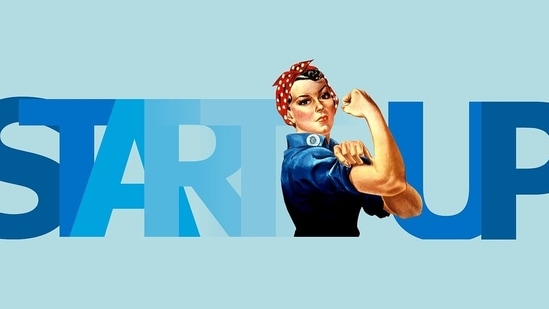The Art of A Good Unicorn | The need for a more gender-inclusive startup culture
Despite growing female representation in Indian startups, women entrepreneurs face disproportionate scrutiny and gender biases, that need to be addressed.
In an early episode of Shark Tank India Season 2, a husband-wife team was pitching their business and they rejected a deal offered by a Shark. After the episode ended, the husband seemed to receive praise for his negotiating skills and his seemingly charming smile, while the wife remarked that she had been labelled as ‘rude’, ‘manipulative’ and ‘greedy’ and was even sent hate messages as the duo had rejected an offer from another Shark. This is just one instance of women entrepreneurs seemingly being targeted for their business decisions.

The statistics may say something else altogether and paint a more rosy picture. According to a Women in India's Startup Ecosystem Report (WISER) 2023 study, startups could create two million new jobs for women by 2030. Women constituted about 35% of the workforce in Indian startups, according to a 2022 study conducted by Her Key. In 2017, women-led startups were said to account for 11% of close to $6 billion of funding that startups received and by 2022, it's said that the share of funding for women-led startups rose to 20% of the close to $22 billion that startups received, as found by WISER's Women's in India's Startup Ecosystem report. However, another study, the 2023 annual report of WinPe, reported that VC funding for women fell to about 9% in 2023 from close to 15% in 2021, with female founders in India said to be receiving less than 10% of funding.
And that might be emblematic of a larger and more systemic issue because women entrepreneurs in India may be facing disproportionate scrutiny and criticism compared to their male counterparts. Imagine a confident and assertive man: they may be seen as a strong leader, while a woman entrepreneur exhibiting the same traits may be labelled as aggressive or difficult. It's the kind of double standard that may not just affect their professional lives, but may also take a toll on their well-being. Just breaking through in the startup realm for women entrepreneurs may not be about having a great business idea and smartly executing it. They may, also, have to navigate a web of gender biases and societal expectations. And those are just the external struggles. Internally, there may be constant pressure to prove themselves, which could lead to burnout and mental health issues. And of course, that kind of mental turbulence isn't exclusive to women, but the additional biases and inequities may exacerbate issues for women entrepreneurs.
Shedding light on the issue, Nikita Baliarsingh, founder and CIO, Nexus Power, said, "As far as being a woman is concerned, I remember when we had just started pitching to investors. I remember one of the very early investors we were pitching to back in the early 2020s. After a detailed discussion, one of the first questions they asked was when we planned to get married, whether our potential husbands would join the company, what would happen to the continuity of the company, who would be there to take care of the business and more. I haven't heard of a single man who has been asked about whether their wife would join the company or not.”
So, do things need to change in the investing world? Can encouraging more women to take on leadership roles in VC firms help in addressing the funding gap? In theory, the idea is that the more diverse the team, the more likely it is to make inclusive decisions and benefit a broader range of entrepreneurs. Sure, the representation of women VCs needs to improve, but irrespective of gender makeup, the idea of inclusive decisions needs to be fostered anyway. Does it need to be more about creating awareness about gender biases and how this impacts women entrepreneurs? Should there be sensitisation programmes for investors, industry leaders and the broader startup ecosystem?
But, beyond investing, women entrepreneurs have lived experiences that reveal these persistent biases and barriers that need to be addressed. So, the question remains, what does it take to build a more inclusive and robust startup ecosystem that benefits all its stakeholders?
Shrija Agrawal is a business journalist. The views expressed are personal
All Access.
One Subscription.
Get 360° coverage—from daily headlines
to 100 year archives.



HT App & Website







